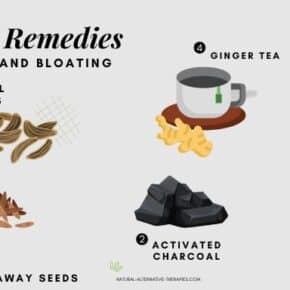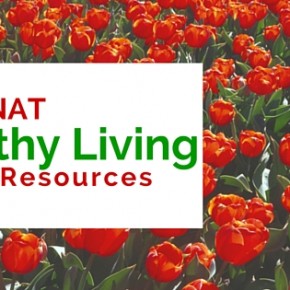How can anyone hate the spring?
Birds are chirping, flowers are blooming, nature flaunts all its beauty again and the darkness of winter is replaced by warm, sunny days.
Still, millions of people around the world hate the spring.
This lovely season brings allergy-sufferers misery, with nonstop sniffles, sneezes and wheezes. Hay fever is probably the most common annoyance, with its awful symptoms of running nose, sneezing, congestion, itching eyes and ears, sleepiness, sinus pressure and fatigue.
desperately seeking for remedies for spring allergies, poor sufferers (like me) run to the nearest pharmacy and buy all sorts of pills and potions that promise to help them breathe again.
But just like with many other conditions, there isn’t one cure that helps all, and you may find yourself trying (and failing) product after product, only to find no relief and an empty bank account.
To help you avoid this season’s costly mistakes and prove to you that natural treatments are MORE effective and of course MORE healthy, I give you these five natural spring allergy remedies (and 3 mistakes to avoid):
Page Contents
3 Common Mistakes to Avoid
1. Allergy Medication – This is just my opinion, but choosing a OTC drug or prescription medication to fight spring allergies is a big mistake. Why take the risk of allergy drugs with their possible side effects and liver and kidney damage, instead of using natural treatments that work just the same?
I made it a mission in my life not to fall in the big pharma companies traps and make them richer on my expense, while there are effective natural alternatives that are better for me and for the environment.
2. Not Knowing Your Allergies – Many people I know just assume they suffer from hay fever, but there are many other allergens can cause similar symptoms. It’s a good idea to see an allergist that will help you find out what exactly you are allergic for. Maybe it’s not pollen you suffer from, it could be cockroaches or even cigarette smoke.
To combat almost all sorts of allergens, you should wash your bedding in hot water every two weeks to fight dust mites, use non-toxic pest management against cockroaches and stop all use of synthetic fragrances.
These can irritate your skin and they contain chemicals that were linked to hormone disruption and even neurological damage.
3. Allowing allergens in Your Home – If you already know that you suffer from hay fever, don’t keep your windows open for “fresh air”. That’s just inviting pollen in. When you come back from outside, take a shower before you sit down on your couch.
Pollen is worst at midday, it’s a good idea to stay home at this time. Also, Grass pollen is a common summer allergen, so try not to torture yourself by mowing the grass.
5 Surprising Natural Remedies for Spring Allergies
Well, at least I’m hoping you’ll be surprised…
#1 – Eat It
 Not many know this, but the immune system sees a similarity between the proteins of pollen and those in some foods. So having these specific foods can cause a reaction for hay fever sufferers, without them knowing why. These foods are cherries, apples, kiwis, apricots, plums and nuts. Peeling or cooking these can help avoid a reaction in some people.
Not many know this, but the immune system sees a similarity between the proteins of pollen and those in some foods. So having these specific foods can cause a reaction for hay fever sufferers, without them knowing why. These foods are cherries, apples, kiwis, apricots, plums and nuts. Peeling or cooking these can help avoid a reaction in some people.
On the other hand, certain foods can actually cure hay fever according to research, these are kale, collard greens, broccoli and citrus fruits.
#2 – Soup It
This anti-allergy soup from Rodale.com is made with ingredients that may also be helpful:
Boil a whole onion with the skin, along with a clove of garlic. Add ½ chopped leaves and diced tap roots of evening primrose. Boil the ingredients for three to five minutes, add 1 cup nettle leaves and 1 cup diced celery stalks, and boil for another three to 10 minutes.
Remove the onion skins from the mix, and enjoy. (You can season with wine vinegar, black pepper, diced raw onions, hot pepper, turmeric, curry powder, or celery seed.)
#3 – Mask It
 While this is not a remedy, it’s a natural and effective way to avoid pollen in your lungs when you have to get out. Most of us can’t afford to stay home throughout the spring and this mask will help you breathe easy on your way to work or to grocery shopping.
While this is not a remedy, it’s a natural and effective way to avoid pollen in your lungs when you have to get out. Most of us can’t afford to stay home throughout the spring and this mask will help you breathe easy on your way to work or to grocery shopping.
You can find Organic anti-allergy masks online or at pharmacies near you. Don’t forget to take a shower, wash your hair and change clothes when you get back home.
#4 – Juice It
According to a few studies, getting the recommended daily of folate (a B vitamin; also called “folic acid”) can be effective in fighting spring allergy and asthma.
But this doesn’t mean you should start popping folic acid supplements, because most of us do not have a folate deficiency and some research say the too much can make things worse (just like with everything else).
The solution: A healthy diet of folate-rich foods to keep your levels high without overdoing it. These foods are (among others): Long-grain white rice, black-eyed peas, pinto beans, chickpeas, orange and spinach. Why not make a simple spinach and orange juice for breakfast and see how you feel?
#5 – Herb It
Herbal remedies are effective for the war on allergy, but natural doesn’t mean safe, so it’s highly recommended to consult with a doctor to make sure they are safe for you, especially if you are mixing them with prescription or OTC drugs.
Stinging nettle acts as an antihistamine in the body and thus reduces allergy symptoms such as itchy eyes and sneezing. You can try taking 300 to 500 mg of Stinging Nettle Leaf Extract capsules daily, or this organic tea made from fresh freeze-dried leaves.
Peppermint: The combination of peppermint’s menthol oils and tannins makes it a powerful against congestion. Steep fresh or dried organic peppermint leaves in boiling water to make a sinus-clearing tea.
Thyme: Thyme is very helpful for coughs, clearing congestion and soothing sore throats. Steep 1 to 2 teaspoons fresh thyme to create a tea, or try commercially prepared thyme tea bags (I recommend this Wild Thyme Organic Tea ).
Horseradish: Freshly grated horseradish is very useful for alleviating stuffy noses and bronchial congestion. Prepare a broth by steeping several spoonfuls of freshly grated root in a bowl of boiling water or soup stock and begin to breathe from your nose again in a few hours.
That’s it friends, I hope you liked this post and found it helpful. I just finished my daily thyme tea and my throat no longer itches, why don’t you go and do the same?
To your health & happiness,
Meital




Just be careful you are not allergic to any of these natural things. I, for, one am allergic to Stinging Nettle. I have always been allergic to every kind of antihistimine. I have found relief with certain Essential Oils.